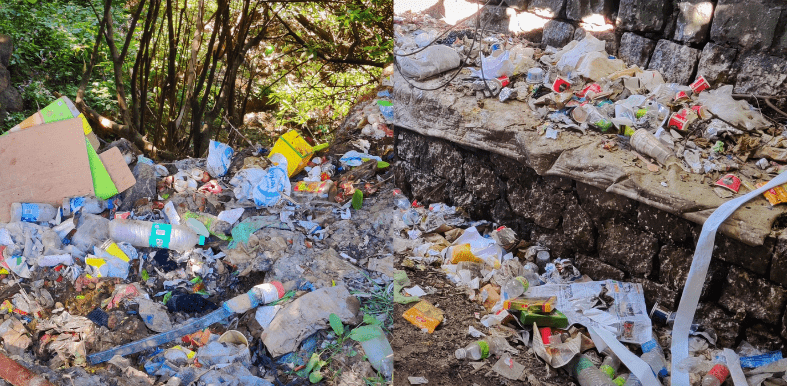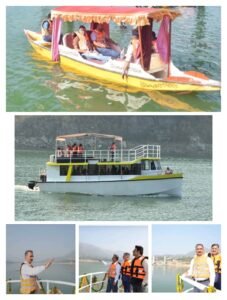Himachal’s Tourism Future Hinges on Effective Waste Management

Shimla/Dharamshala: The Himachal Pradesh government has set ambitious plans to establish Kangra as a tourism capital, also proposed “tourism village” in Palampur. While the initiative holds promise for economic growth and cultural exchange, effective waste management remains a critical concern that needs immediate, sustained action to protect the environment and safeguard the interests of future generations.
Waste management is a glaring issue in the state’s tourist towns. In fact, it is on record that the urban local bodies of Kullu, Manali, Bhuntar, and Banjar faced penalties of ₹5 lakh each for their mismanagement of waste, resulting in environmental degradation.
These fines underline the urgency for action and set a precedent, emphasizing the need for stringent waste disposal protocols in tourism hotspots to uphold environmental standards.
The issue of mounting waste in popular tourist towns has been a consistent concern in the Himachal Pradesh Legislative Assembly. It surfaced again early in the tenure of the current Congress administration, during which Chief Minister Sukhvinder Singh Sukhu, then heading the Urban Development Department, acknowledged the pressing need for sustainable waste solutions.
Also Read: https://thenewzradar.com/days-before-diwali-over-3-quintals-of-milk-cake-seized-in-mandi-10-samples-of-sweets-found-substandard/
However, despite recognition and ongoing discussion, the implementation of comprehensive, long-term waste management strategies has lagged. This delay continues to burden tourist-heavy areas, which struggle to manage the growing demands of waste disposal effectively.
Although urban bodies have made strides in waste collection, disposal remains a monumental task. Tourist sites continue to grapple with accumulating waste, creating unsightly garbage mounds at dumping sites with little progress toward proper disposal or recycling infrastructure.
Neither elected representatives nor newly inducted MLAs have effectively pushed for concrete, actionable solutions to tackle the waste crisis in the state, despite discussions in assembly sessions. Addressing this issue remains crucial for the sustained growth and health of Himachal’s tourism industry.
Also Read: https://thenewzradar.com/police-lathicharge-lawyers-inside-up-courtroom-after-dispute-over-bail-petition/
Waste concerns also extend beyond traditional tourist destinations, affecting religious and pilgrimage sites. The famed Manimahesh pilgrimage, attracting thousands globally, exemplifies the scope of the problem. After this year’s event, over 9,000 kg of waste was collected by social organizations, including Healing Himalayas and Dhauladhar Cleaners, with the Bharmour Administration also supporting cleanup efforts. Despite these commendable efforts, volunteers noted that waste remains in Bharmour’s hills, highlighting the need for ongoing maintenance and waste solutions.
It is undeniable that government representatives have observed best practices abroad. Yet, translating these experiences into effective domestic policy remains incomplete. Though several initiatives have been implemented on paper, tangible, sustainable results are still awaited. Whether for pilgrimage or tourism, fostering a sustainable tourism industry requires maintaining hygiene and environmental standards.
Rising temperatures in parts of Himachal Pradesh and India underscore the impact of unchecked waste, pollution, deforestation, and urban sprawl. The urgency for comprehensive action on waste management has never been more apparent. As Himachal Pradesh aspires to boost tourism, concrete steps toward environmental preservation are critical. Only through genuine action will the vision of a tourism-friendly, environmentally resilient Himachal be realized.




